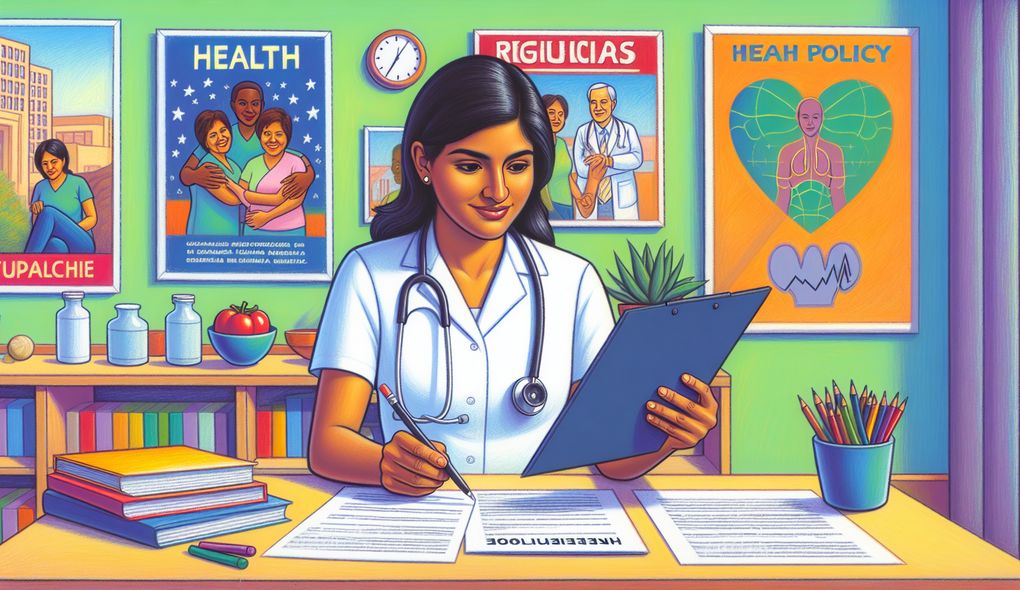How do you incorporate the perspectives and needs of patients and communities into your policy development process?
SENIOR LEVEL

Sample answer to the question:
Incorporating the perspectives and needs of patients and communities is a crucial aspect of my policy development process. I start by conducting comprehensive research to understand the demographics, cultural factors, and health disparities within the specific patient population and community. This helps me identify their unique needs and challenges. I then engage with stakeholders such as patient advocacy groups, community organizations, and healthcare professionals to gather their insights and expertise. I prioritize transparency and inclusivity throughout the policy development process by seeking feedback through surveys, town hall meetings, and public consultations. This ensures that the policies I develop align with the interests and values of the patients and communities they will impact.
Here is a more solid answer:
As a Health Policy Nurse, I have honed my analytical and critical thinking skills to analyze healthcare policies and understand their impact on patient care and outcomes. I leverage my excellent communication and interpersonal skills to engage with patients, communities, and stakeholders. By actively listening to their perspectives, I ensure their voices are heard in the policy development process. My ability to work effectively with diverse groups allows me to collaborate with stakeholders from different backgrounds, including patient advocacy groups, policymakers, and healthcare professionals. I am well-versed in healthcare law and ethical guidelines, which helps me navigate the policy development process while ensuring compliance and patient safety. I utilize my proficiency in data analysis and research methodologies to inform evidence-based policy recommendations. Furthermore, my experience in leadership and project management enables me to drive the development and implementation of health initiatives that address the specific needs of patients and communities.
Why is this a more solid answer?
The solid answer goes into more detail about the candidate's specific skills and experiences that demonstrate their ability to incorporate the perspectives and needs of patients and communities into their policy development process. It addresses all the evaluation areas mentioned in the job description and provides specific examples of how the candidate utilizes these skills and experiences. However, it could be further improved by including more specific examples of projects or initiatives the candidate has worked on that involved incorporating the perspectives and needs of patients and communities.
An example of a exceptional answer:
Incorporating the perspectives and needs of patients and communities is at the core of my policy development process as a Health Policy Nurse. To ensure a comprehensive understanding of their perspectives, I actively engage with diverse patient populations and communities through focus groups, surveys, and community forums. This allows me to tailor policies to their unique needs, cultural factors, and health disparities. For example, in a recent project aimed at improving access to mental health services in underserved communities, I collaborated with local organizations and community leaders to develop targeted interventions based on community feedback. I also regularly attend conferences and workshops to stay updated on healthcare law, ethical guidelines, and emerging policy trends. This knowledge enables me to develop policies that not only address current challenges but also anticipate future issues. Additionally, my ability to influence and negotiate effectively has been instrumental in advocating for patient-centered policies in various policy-making forums. By leveraging my strong leadership and project management skills, I have successfully led cross-functional teams in the development and implementation of initiatives that have had a positive impact on patient outcomes and public health.
Why is this an exceptional answer?
The exceptional answer provides a comprehensive and detailed explanation of how the candidate incorporates the perspectives and needs of patients and communities into their policy development process. It includes specific examples of projects or initiatives the candidate has worked on that demonstrate their ability to effectively incorporate these perspectives and needs. The answer also showcases the candidate's commitment to continuous learning and staying updated on healthcare law, ethical guidelines, and emerging policy trends. Additionally, it highlights the candidate's strong leadership and project management skills and their successful track record in leading cross-functional teams. The answer effectively addresses all the evaluation areas mentioned in the job description.
How to prepare for this question:
- Familiarize yourself with the demographics, cultural factors, and health disparities within different patient populations and communities.
- Stay informed about current healthcare policies and regulations, as well as emerging policy trends.
- Develop strong analytical and critical thinking skills to analyze the impact of policies on patient care and outcomes.
- Enhance your communication and interpersonal skills to effectively engage with patients, communities, and stakeholders.
- Seek opportunities to work with diverse groups of professionals and stakeholders to develop your ability to collaborate effectively.
- Gain experience in leadership and project management within a healthcare setting.
- Stay updated on data analysis and research methodologies to inform evidence-based policy recommendations.
- Develop your ability to influence and negotiate to achieve health policy objectives.
- Proactively seek opportunities to advocate for patients and communities in policy-making forums.
What are interviewers evaluating with this question?
- Analytical and critical thinking skills
- Communication and interpersonal skills
- Ability to work effectively with diverse groups
- Knowledge of healthcare law and ethical guidelines
- Proficiency in data analysis and research methodologies
- Ability to influence and negotiate
- Understanding of the healthcare system and its regulations
- Leadership and project management skills

